Written by Milpark Communications
Alwyn Visser has a way of speaking about his passion for teaching BCom in Accounting subjects that would inspire even the most accounting-adverse person. Visser forms part of Milpark Education’s School of Professional Accounting team and has played an instrumental role in developing the degree, which took in its first-ever cohort in January 2023.
Visser joined Milpark in June 2023 and seized the opportunity to be part of the exciting process of designing and developing modules for the new BCom in Accounting programme. “I really like the idea that we get to start on a clean slate. The CA of the Future competency framework for chartered accountants has changed completely. Now we had the opportunity to reflect on meaningful accounting education that are transformational to the individual, relevant for the market and aligned to SAICA’s vision.”
Visser, who completed his Postgraduate Diploma in Accounting at Stellenbosch University in 2008, has extensive lecturing experience that he accumulated at the same institution. He was responsible for developing some of the digital modules thus far as there is significant emphasis on digital acumen that should be pervasive to accounting education. Currently, he is involved with the development of the Applied Business Information System module.
“This module excites me! Our students will first complete the SAGE Business Cloud Accounting course, and they [will] get certification for this from SAGE. This is valuable since it is something our students will be able to add to their CV. And then we get to what really matters. The development of critical thinking and problem-solving skills, whilst developing an awareness of the consequences of decisions made. To a large degree the module is almost like a massive case study where students face real business problems.”
Students will be required to process transactions on SAGE from the perspective of a business owner and at certain points in time, they have to make particular decisions in their capacity as owner of the business. This prepares students to move beyond the mere theoretical knowledge of accounting modules, towards how such theoretical knowledge translates into practice in the real world. Not only will students get comfortable with using the software to extract financial information for decision-making, but they will also be confronted with business realities such as customers paying late and imported inventory getting stuck at customs.
The goal is graduates that can enter the work-force and immediately make a contribution and create value for their chosen employer. “This practically applied module allows us to really build in some of the professional values and attitudes that we would want a professional accountant to display by the time they are qualified.”
Visser says that a lot of what he knows can be attributed to his work experience and not so much the theoretical knowledge that he was taught. “I realised when I started working that there were some of my peers, and trainees when I was an audit manager, that struggled to transition from ‘theoretical’ knowledge to practical applied knowledge. I’m a pragmatist; I want to know what the theory means in practice. And this is why this particular module excites me so much. What an opportunity to think practically whilst you are still mastering the theory.”
The idea that an accounting professional should be armed with more than just technical knowledge and skills is what informed Visser’s desire to be part of the Milpark team. Students should also develop the attributes that will make them curious, confident, resilient and collaborative accounting professionals. “I want to set them up for life and not just for an exam. We should continuously look for ways to teach and assess better to make sure a student is set up as best as possible for life and the professional business world landscape.”
Visser says that joining the online learning sphere has been an adjustment, but one that he welcomes. He says that while it’s easy to read the body language and facial expressions of students while in a lecturing hall while teaching new concepts, it takes a lot more intentionality in setting up online courses. “We need to anticipate the content that students will find challenging when they work through the material asynchronously. In online teaching, you need to make sure that you guide the student meaningfully through the learning content. Luckily, there’s a lot of support in the process of designing the courses at Milpark. The process is rigorous, with guidance from learning experience designers and academic reviewers.”
Visser’s dreams for the future are inspirational. “I think I’m definitely an educator at heart and I’m very passionate about the entire education process of chartered accountants. In terms of the long-term, if I could dream up any job for myself, it would be to take existing courses and see where you can improve on them in terms of making them more practical. So, helping students to understand [the course content] better, but also aligning [teaching more practically] to what the students are learning.”








